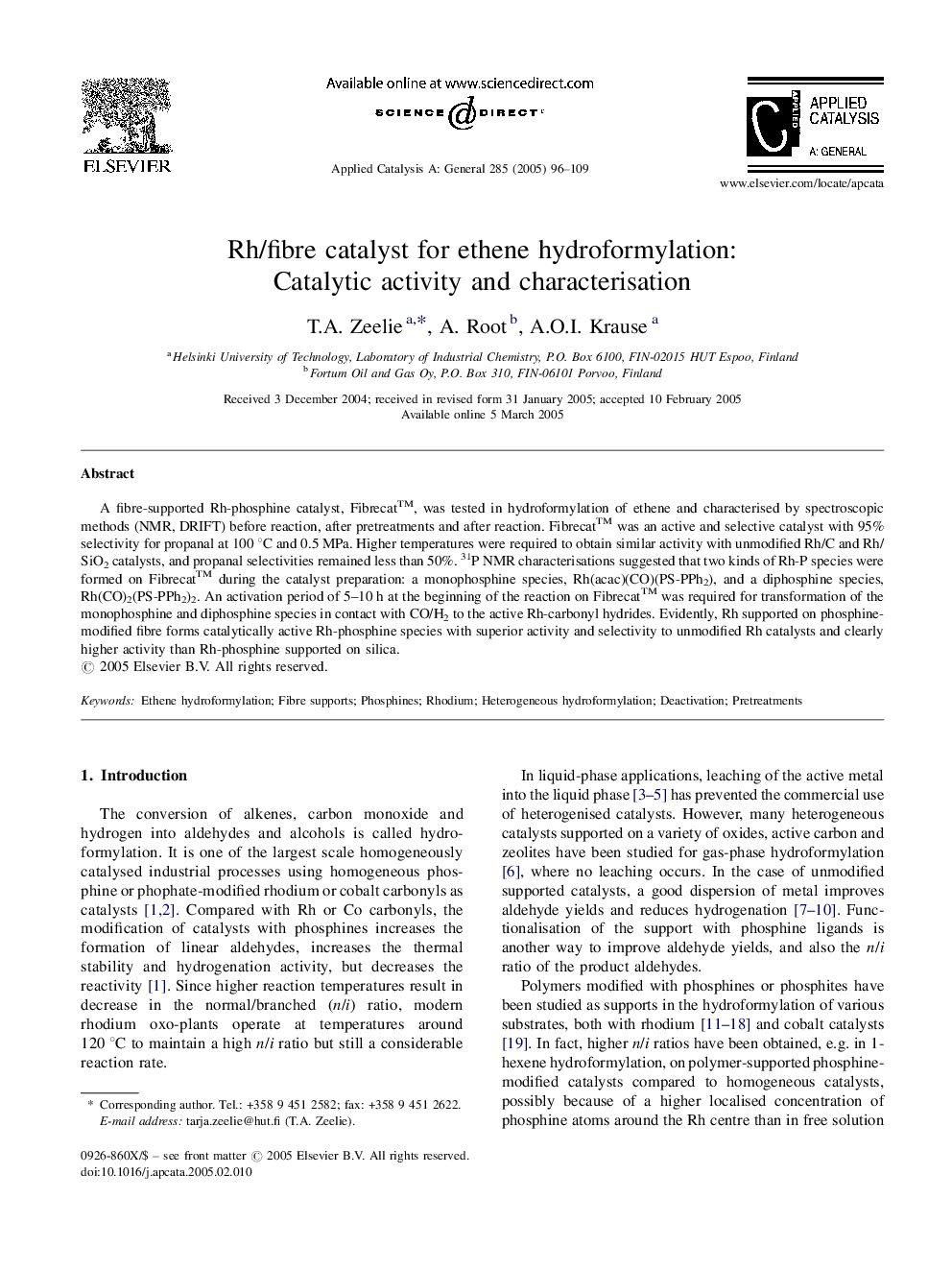| Article ID | Journal | Published Year | Pages | File Type |
|---|---|---|---|---|
| 9607950 | Applied Catalysis A: General | 2005 | 14 Pages |
Abstract
A fibre-supported Rh-phosphine catalyst, Fibrecatâ¢, was tested in hydroformylation of ethene and characterised by spectroscopic methods (NMR, DRIFT) before reaction, after pretreatments and after reaction. Fibrecat⢠was an active and selective catalyst with 95% selectivity for propanal at 100 °C and 0.5 MPa. Higher temperatures were required to obtain similar activity with unmodified Rh/C and Rh/SiO2 catalysts, and propanal selectivities remained less than 50%. 31P NMR characterisations suggested that two kinds of Rh-P species were formed on Fibrecat⢠during the catalyst preparation: a monophosphine species, Rh(acac)(CO)(PS-PPh2), and a diphosphine species, Rh(CO)2(PS-PPh2)2. An activation period of 5-10 h at the beginning of the reaction on Fibrecat⢠was required for transformation of the monophosphine and diphosphine species in contact with CO/H2 to the active Rh-carbonyl hydrides. Evidently, Rh supported on phosphine-modified fibre forms catalytically active Rh-phosphine species with superior activity and selectivity to unmodified Rh catalysts and clearly higher activity than Rh-phosphine supported on silica.
Related Topics
Physical Sciences and Engineering
Chemical Engineering
Catalysis
Authors
T.A. Zeelie, A. Root, A.O.I. Krause,
